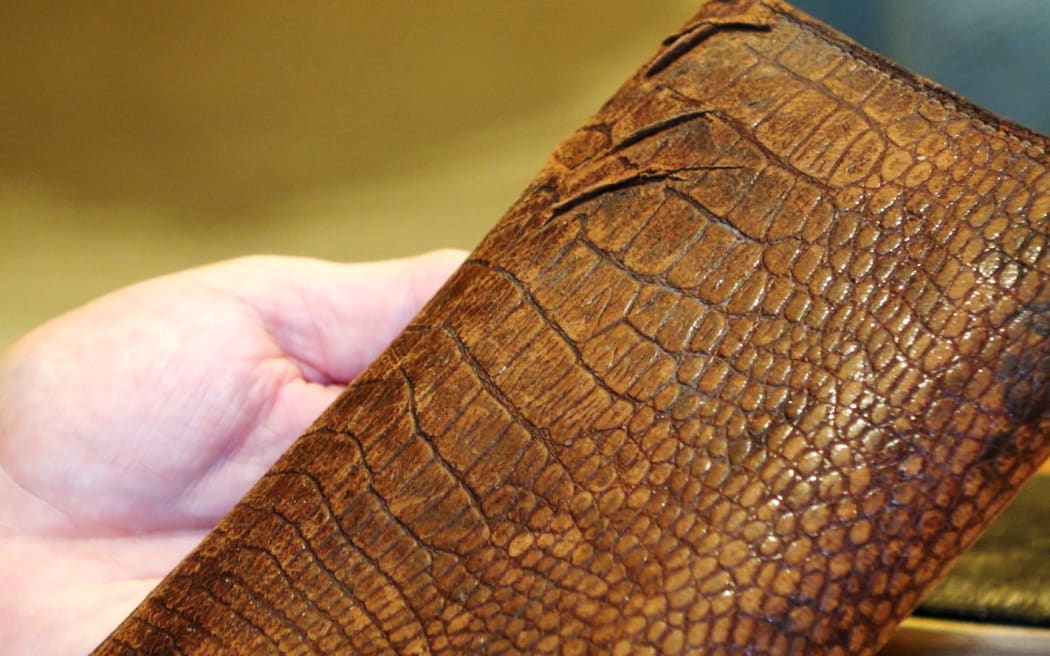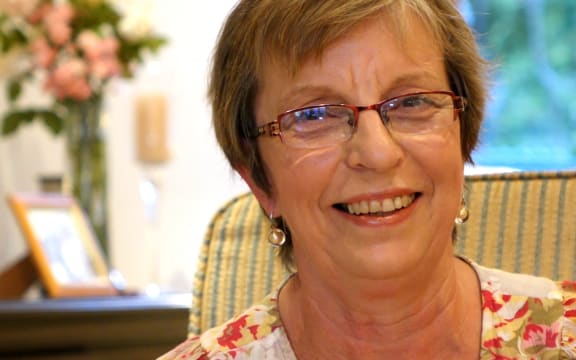On Anzac Day, 2000 New Zealanders will stand on the same soil where even more of the country's soldiers fell at Gallipoli.
The War to End All Wars: Our Anzac 2015 Interactive
They were picked in a ballot. Among them will be three women from Auckland - Rosemary Steane, her sister Glenys Muir, and Ms Muir's daughter Colette Muir.
Several of their relatives were involved in the First World War on the front line and elsewhere.
The women are going to remember two in particular: Edward (Ted) Gasparich - grandfather to Rosemary and Glenys - and his older brother Joe Gasparich.
Radio New Zealand is following them on their journey in a multi-part video series. This is part one.
Ted Gasparich was Rosemary Steane's and Glenys Muir's grandfather, someone they describe as a devoted family man.
"We were his only grandchildren. I don't remember him ever saying anything about Gallipoli except explaining his wallet," Ms Muir said.
It is a wallet Mr Gasparich, or "Poppa Ted", had in his pocket while he was carrying water. Shrapnel hit him so hard he was knocked off his feet.
The tough brown wallet, which the family still has, is surprisingly unweathered and shows the thick slices and scars left by the shrapnel.
"I don't remember him ever talking again about Gallipoli," Ms Muir said.
"And yet, it was always there in the background. It was a place in the world we knew of more than any other place in the world."

Ted Gasparich's wallet, slashed by shrapnel. Photo: RNZ / Kim Baker Wilson
It is this link, a link the family describes as intrinsic to them, that made them want to set foot on Gallipoli this Anzac Day.
Colette Muir has been finding her research emotionally challenging. She uses the word pilgrimage for her upcoming journey, and said it would be a once-in-a-lifetime experience.
"It has a whole lot of different emotions at the age that I am. I was just thinking the other day that I've got three little boys.
"You put them all in bath and you think 'oh my goodness', there were mothers 100 years ago who had three little boys that they had brought up - and then they sent them away to a place like this."
A calling to go to Gallipoli
Rosemary Steane heard on the radio that the first wave of people selected to go would be emailed about their success.
"I thought 'oh, I'll just have a look and see', and when I looked I just could not believe it. There was the email for me to say that we had been successful.

Rosemary Steane Photo: RNZ
"I felt really very honoured because I knew so many people had applied and it was going to be just such a wonderful experience to be able to go," she said.
Gallipoli and Anzac Day have always been a part of this family.
"I was desperately disappointed when Rosemary got into the first ballot and I didn't," Ms Steane's sister Glenys Muir said.
"I decided that was how it was meant to be, and I was delighted someone from our family was able to go and represent us over there.
"I wasn't expecting to get into the next ballot. When we did I thought, 'it's too late to be going', but my daughter here had other ideas - and we were going."
- In part two, we find out more about the family links Rosemary, Glenys and Colette share with Gallipoli.
Thanks to Rosemary Steane, Glenys Muir, Colette Muir, Radio New Zealand producer Kim Griggs, Radio New Zealand head librarian Emma Hart, Archives New Zealand Te Rua Mahara o te Kāwanatanga, Ngā Taonga Sound & Vision.

